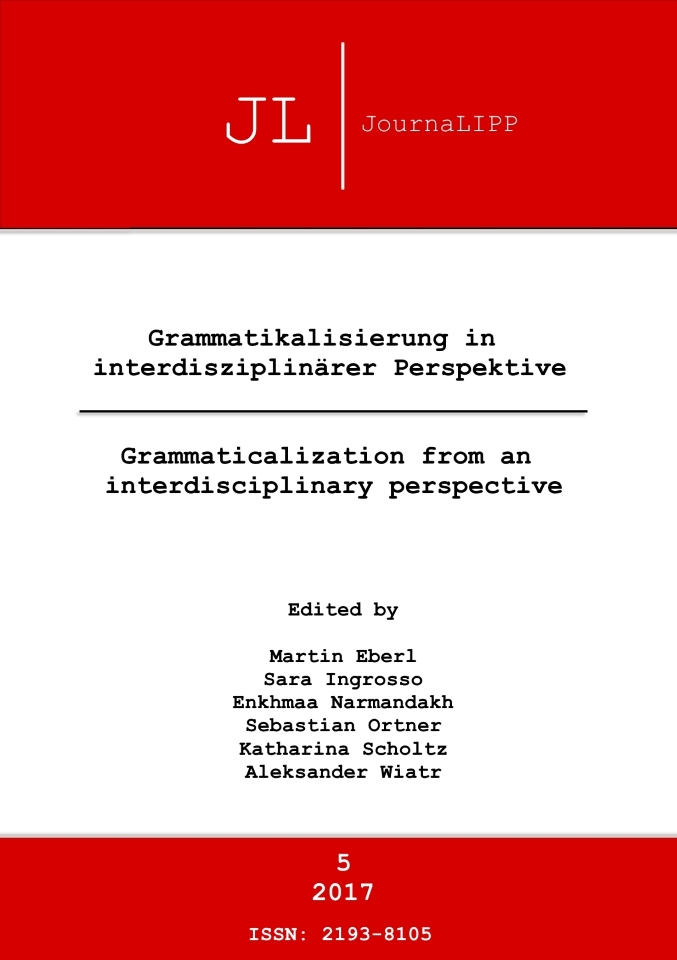Abstract
In Modern French, main-clause initial puisque is a discourse-marker which coexists with a homonymous subordinating causal connective. Diachronically, it has emerged from the latter through a process of insubordination. It is often assumed that the diachronies of discourse makers can be meaningfully described as grammaticalization processes. This view has been challenged by Detges & Waltereit (2009, 2016) on the grounds that grammar in the narrow sense (e.g. inflectional morphology) on the one hand and discourse markers and modal particles on the other are the outcome of different kinds of diachronic processes. For sentence-initial puisque, this question is further complicated by the fact that insubordination has been claimed to be a counter-example to basic assumptions of established grammaticalization theories. Against this backdrop, this article pursues two objectives. Firstly, an account will be given of the diachronic mechanisms that turned the subordinating connective puisque into a main-clause-initial item. It will be shown that the emergence of main-clause-initial puisque is brought about by a pragmatically motivated reanalysis whereby a frequent usage-effect was conventionalized as the construction's new meaning. This change took place in elaborative discourse contexts (see D’Hertefelt / Verstraete 2014) where subordinating puisque was used to negotiate the next move in discourse building. Secondly (and more importantly), I will discuss the question of whether this process can be meaningfully classified as an instance of grammaticalization.

